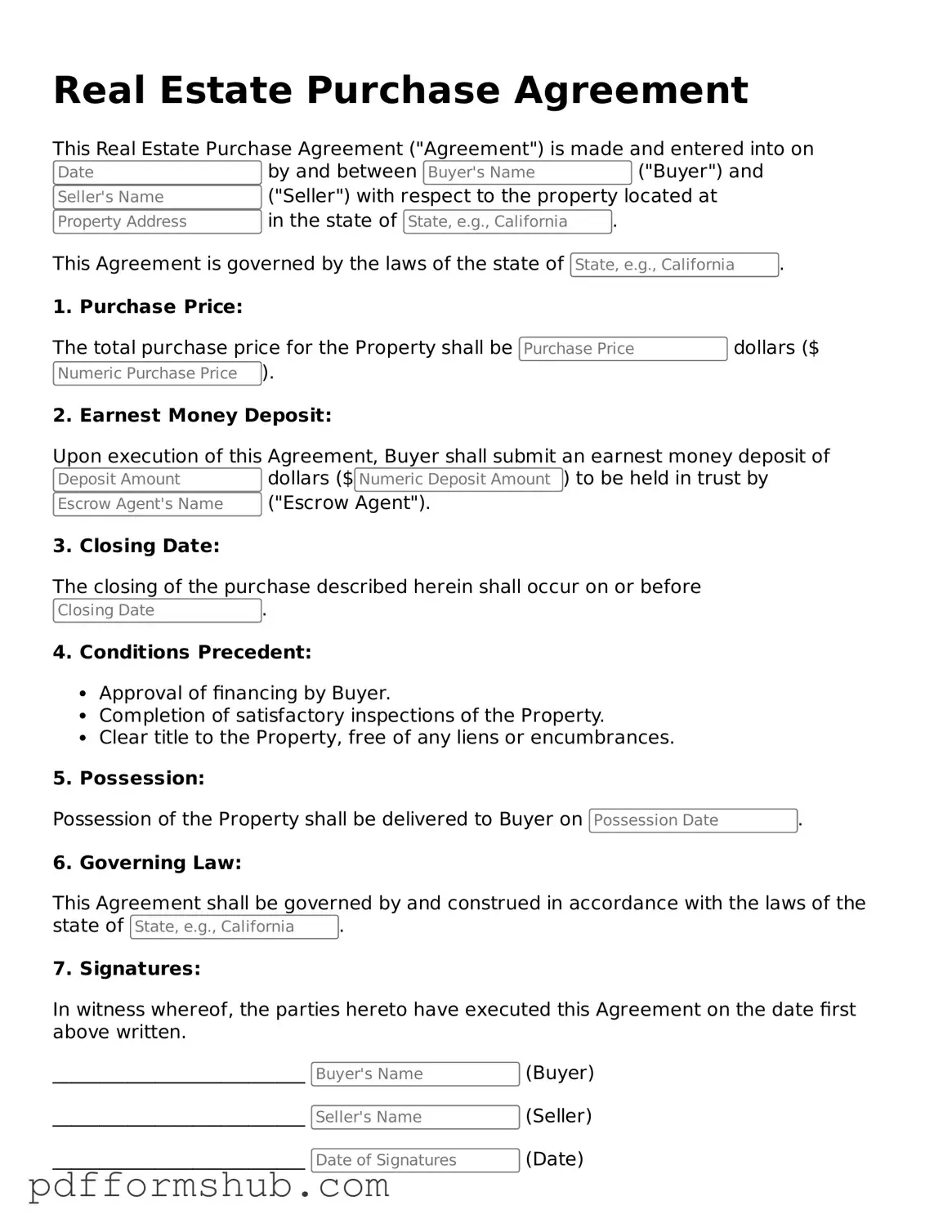Valid Real Estate Purchase Agreement Form
A Real Estate Purchase Agreement is a legally binding document that outlines the terms and conditions of a property sale between a buyer and a seller. This essential form serves as a roadmap for the transaction, detailing important aspects such as the purchase price, financing terms, and contingencies. Understanding this agreement is crucial for both parties to ensure a smooth and successful real estate transaction.
Ready to take the next step? Fill out the form by clicking the button below.
Customize Form

Valid Real Estate Purchase Agreement Form
Customize Form

Customize Form
or
Free PDF Form
Short deadline? Complete this form now
Complete Real Estate Purchase Agreement online without printing hassles.